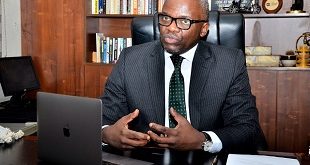As Suresh Naidu, Gabriel Zucman, and I explain in our “manifesto,” neither sound economics nor convincing evidence support many of the dominant policy ideas of the last few decades. What has come to be called “neoliberalism” is in many ways a derogation of mainstream economics. And contemporary economic research, appropriately deployed, is in fact fully conducive to new ideas for creating a fairer society. Economics can be an ally of inclusive prosperity. But it is up to us economists to convince our audience of the merits of these claims.
Our network is made up of academic economists who believe new ideas can be developed without abandoning scientific rigour. The catchphrase of our day is “evidence-based policy.” Accordingly, our policy briefs are based on empirical analysis, using tools of mainstream economics. But, for us, an “evidence-based” approach is not one that reinforces a conservative bias in favour of policies at the margins of existing institutional arrangements; it is one that encourages experimentation. After all, how can we develop new evidence without trying something new?
Markets rely on a wide range of institutions to create, regulate, and stabilise them. These institutions do not come with predetermined forms. Property and contracts – the most elementary institutions required to make markets work – are legal constructs that can be designed in any number of ways. As we grapple with new realities created by technological innovation and climate change, questions about the allocation of property rights among different claimants become crucial. Economics does not provide definite answers here, but it supplies the tools needed to identify the relevant tradeoffs.
A common theme running through our initial set of policy proposals is the power asymmetries that shape the functioning of the contemporary global economy. Many economists dismiss the role of such asymmetries because there is little scope for power under conditions of perfect competition and perfect information. But in the real world that we examine, power asymmetries abound.
Who has the upper hand in bargaining for wages and employment benefits? Who dominates markets and who must submit to market forces? Who can move across borders and who is stuck at home? Who can evade taxation and who cannot? Who gets to set the agenda of trade negotiations and who is excluded? Who can vote and who is effectively disenfranchised? We argue that addressing such asymmetries makes sense not only from a distributional standpoint, but also for improving overall economic performance. Economists have a powerful theoretical apparatus that allows them to think about such matters.
Although economists are well positioned to develop institutional arrangements that go beyond what already exists, their habit of thinking at the margin and sticking close to the evidence at hand encourages an aversion to radical change. But, when presented with new challenges, economists must envision new solutions. Imagination is crucial. Not everything we try will succeed; but if we do not rediscover the value of FDR’s credo – “bold, persistent experimentation” – we will certainly fail.
****
Dani Rodrik, Professor of International Political Economy at Harvard University’s John F. Kennedy School of Government, is the author of Straight Talk on Trade: Ideas for a Sane World Economy.
Copyright: Project Syndicate, 2019.
 The Independent Uganda: You get the Truth we Pay the Price
The Independent Uganda: You get the Truth we Pay the Price


